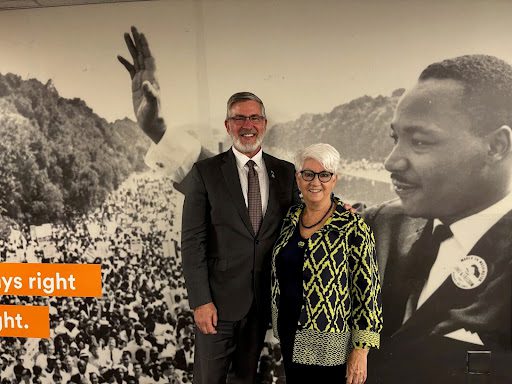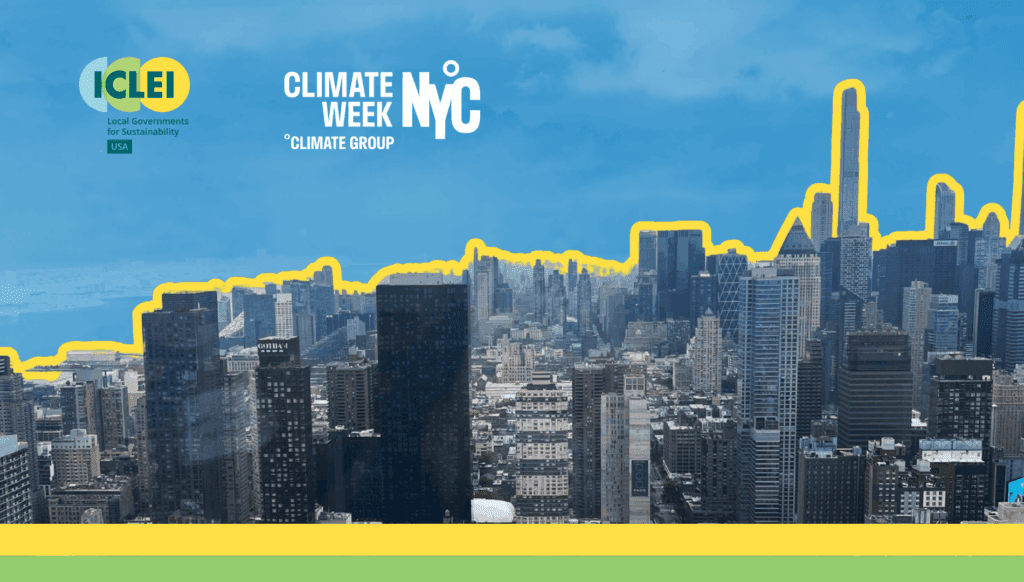
At this year’s Climate Week, ICLEI – Local Governments for Sustainability brought its largest-ever delegation — more than 20 mayors and local leaders from the United States, Brazil, Sweden, Morocco, Ecuador, Argentina, Australia, and Colombia. They joined hundreds of partners and leaders in New York City with a shared purpose: to listen, exchange ideas, and advance sustainability and climate action in real communities. What became clear is that conversations are not side notes, they are the work itself. When leaders sit together and speak honestly about challenges and trade-offs, that is when strategies shift, partnerships form, and momentum builds.
People and Workforce at the Center
Again and again, the question of who will do the work came up. A climate-ready workforce is essential, and local governments are turning to universities, training centers, and community colleges to help. In Ann Arbor, Missy Stults described efforts to make climate jobs an entry point to economic opportunity, especially in underserved neighborhoods. Local vendor engagement and youth recruitment campaigns are making sure that the benefits of clean energy markets don’t leave anyone behind.
At the same time, local government staff reminded us that data-sharing and institutional silos can slow progress. The answer, as one speaker put it, is simple: “Cities do not need to reinvent the wheel.” By creating shared libraries of best practices and leaning on platforms like ClearPath 2.0 and The Atlas of Sustainability Action Planning, communities can move faster and smarter.
The ASAP Map: A National View of Local Action
The Atlas of Sustainability Action Planning is the most complete picture yet of local climate and sustainability action in the U.S.
- Over 1,000 plans from more than 700 jurisdictions
- A living resource that highlights strategies, goals, and assessments
- A tool that connects communities so they don’t have to act alone
Hastings-on-Hudson Youth Town Hall COP
In partnership with Mayor Nicola Armacost and ICLEI USA, Hastings-on-Hudson hosted one of the first Youth Town Hall COPs in the United States.
- Engaged young people directly in assessing the Village’s climate and sustainability progress
- Gave youth a platform to connect local priorities to national and global climate efforts, including future Paris Agreement targets
- Showed how young voices can contribute to international processes like CHAMP and influence decision-making at every level
- Demonstrated Hastings-on-Hudson’s leadership in creating space for the next generation to shape climate action locally and globally
“Our first-ever youth-led climate change conference, also known as COP, was an inspiration for everyone there. Young people care deeply about the world they will inherit, and those of us in positions of power should give them a seat at the table; they bring many fresh, innovative ideas that are worth implementing. Thanks to ICLEI – Local Governments for Sustainability USA for helping us realize this dream. In Hastings, our young people are ready for Youth COP II!” – Mayor Nicola (Niki) Armacost, Village of Hastings-on-Hudson, NY, and ICLEI USA Board Member
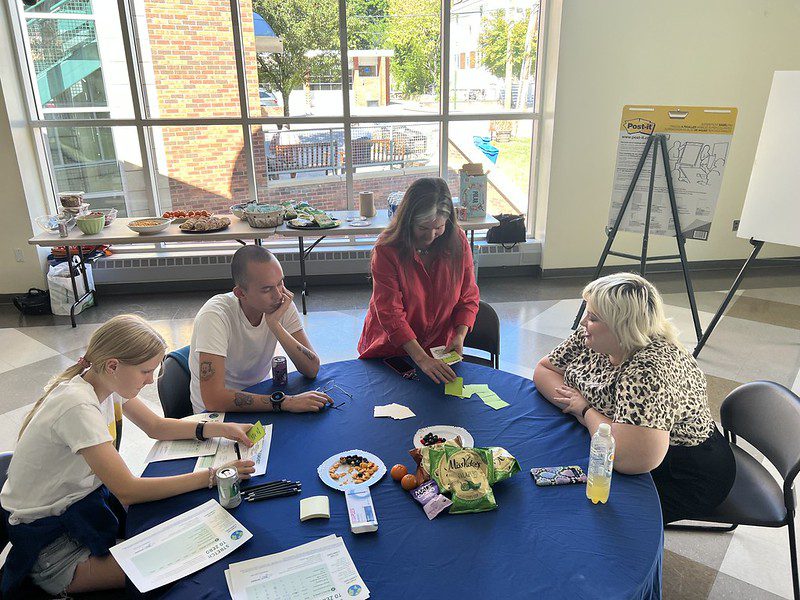
During a session on Capacity, Ingenuity, and Deployment, Coral Springs Vice Mayor Nancy Metayer Bowen reminded participants: “It is our job as local elected leaders to make sure individuals in the room can share their stories, amplify their voices, feel empowered, and hold us accountable.” Her words captured the spirit of the week: putting people and workforce at the center of climate action.

Empowering Local Climate Action through Climate Tech
In partnership with ClimateView and EY, ICLEI USA explored workforce, finance, and communication strategies. Key takeaways from the Climate Week session were:
- ClearPath 2.0 is a powerful platform streamlining the entire climate action process through smarter data, dynamic economic and emissions modeling, and cross-departmental collaboration.
- Communication is the thread connecting people, finance, and innovation.
- Humanizing climate stories, sharing best practices, and aligning finance with workforce development help local governments turn plans into results.
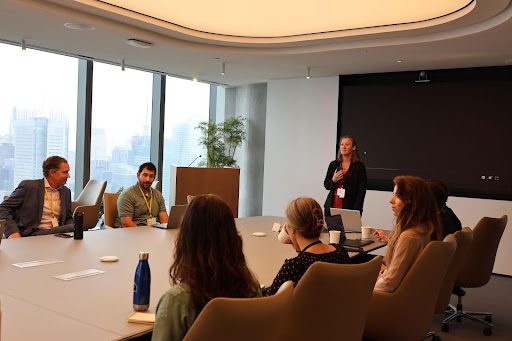
Resilience Rooted in Equity
At the National League of Cities session, Nature-based Solutions for Climate Resilience to Wildfires and Extreme Heat, mayors showed how nature-based solutions can advance equity and protect communities.
In Athens, Ohio, Mayor Steve Patterson described reintroducing sycamore forests along rivers to reduce flooding, cool neighborhoods, and cut energy costs. Boise’s Mayor Lauren McLean highlighted doubling the city’s tree canopy, linking housing and geothermal resources to climate goals, and ensuring every resident lives within a 10-minute walk of green space.
Blytheville’s Mayor Melisa Logan emphasized regional collaboration across 30 cities in 8 states to restore wetlands and protect the Mississippi River basin from storms and drought. From New York City, Deputy Director Jessica Cruz shared plans for a 10-year urban forest expansion and environmental justice programs that address deadly heat and flooding in frontline neighborhoods.
Infrastructure matters, but resilience depends on something deeper: who benefits from it, who gets included, and who helps decide what it looks like.
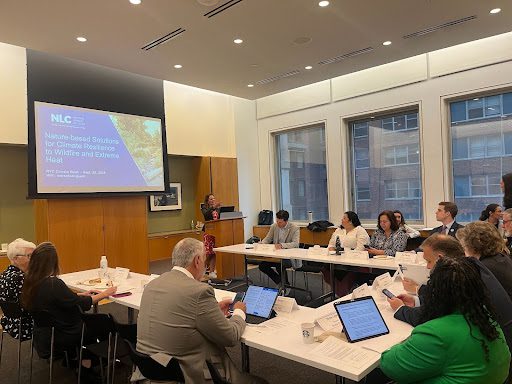
In Hoboken, New Jersey, Mayor Ravi Bhalla highlighted the Rebuild by Design Hudson River Project, a nearly $300 million effort to protect Hoboken, Jersey City, and Weehawken from future coastal flooding. The project combines floodwalls, levees, and sewer upgrades with new community spaces, including an expanded Harborside Park.
Working alongside Hoboken’s resiliency parks and green infrastructure, the project is designed to keep storm surge out, manage heavy rain, and protect residents from future flooding. It also delivers everyday value by expanding parks and public spaces that the community can use year-round.
“Climate finance is essential to turning ambitious local climate goals into reality. In Hoboken, investments like the Rebuild by Design – Hudson River Project demonstrate how diverse funding strategies can drive resilient infrastructure that protects residents while preparing our city for a changing climate. Continued financial commitment is how we scale solutions that safeguard communities everywhere.” – Mayor Ravi S. Bhalla, City of Hoboken, New Jersey, and ICLEI USA Board Member
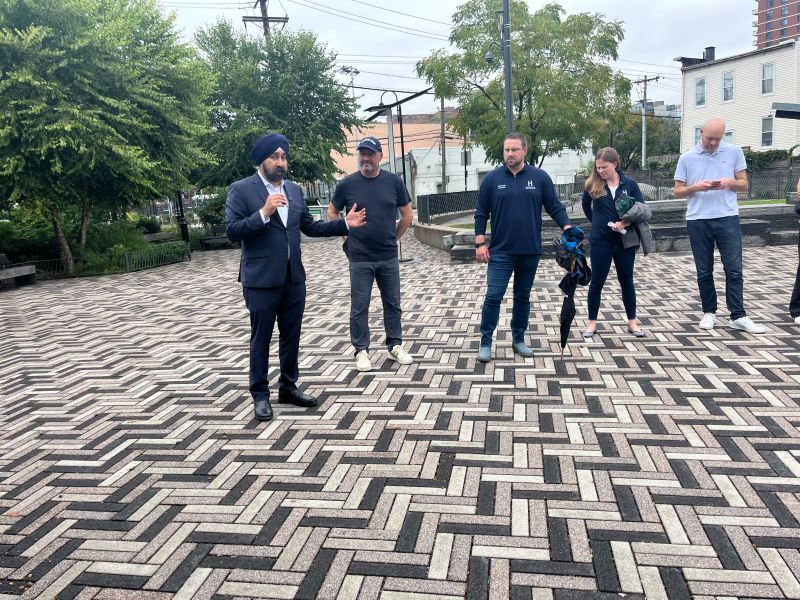
Facing Climate Displacement Together
Few issues cut to the heart of climate reality more than mobility and displacement. David Lubell, Senior Climate Mobility and Cities Fellow at ICLEI USA, urged cities to treat climate displacement as central to their planning, rather than an afterthought. He encouraged leaders to become pilot sites, join peer cohorts, and push for stronger state and federal support.
“Cities often move when they hear from other cities,” he reminded the room. “And a little peer pressure isn’t so bad.”
Lubell also pointed to the Global South, where communities have been navigating climate displacement for far longer. Their lessons, innovations, and resilience deserve not only attention but integration into global action.

Finance and the Power of Story
Climate finance and the power of storytelling surfaced everywhere. New York City’s climate budgeting showed how costs can be spread across departments while advancing emissions reductions. Private-sector partners discussed ways to fund building upgrades and housing subsidies.
Yet the recurring insight was that even the best finance strategies need the right story. Communication is what brings residents on board, convinces investors, and keeps governments aligned. Humanizing the impacts, whether it is a family breathing easier after a heating upgrade or a neighborhood shaded by new trees, makes climate action real.
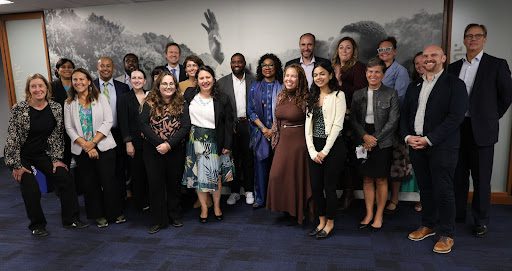
Municipal Investment Fund – Aligning Capital for Clean Energy Infrastructure
ICLEI USA and the Coalition for Green Capital hosted a session on financing local climate solutions through municipal investment.
- Stories from Michigan to the Carolinas on mobilizing clean energy capital
- Conversations connecting technology, finance, resilience, and leadership
Insights into how public–private capital can bring more energy, jobs, and clean water to communities
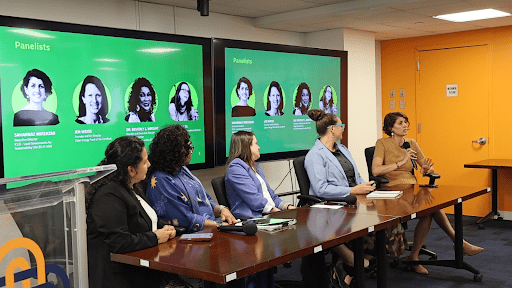
Delegation Dinner
One of the week’s most meaningful moments came outside the formal agenda at a dinner with ICLEI’s delegation. Over a shared table, mayors, city staff, and partners spoke candidly about the hurdles they face back home, from workforce shortages to political divides, and the creative ways they are overcoming them. These kinds of informal exchanges deepen relationships, surface practical solutions, and remind us why building community among local leaders is as important as any session or panel.
“By bringing local governments and partner organizations together, we can align community needs with business expertise to work more effectively, collaboratively, and at scale to advance sustainability.”– Brigid Shea, ICLEI USA Board Chair and Travis County, TX, Commissioner
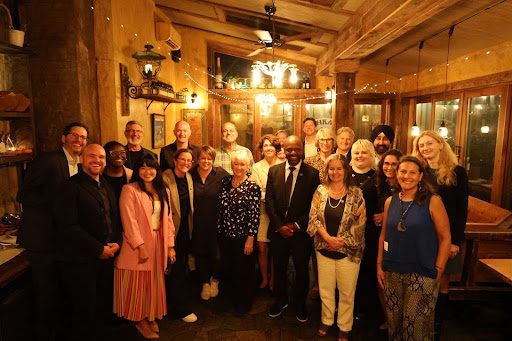
Broadening the Tent
Co-hosted with the National League of Cities, ICLEI USA’s Big Tent for Climate Action showed the power of bringing diverse voices together. The session featured participation from the National Association of Counties, the International City/County Management Association, and other local government networks. From bipartisan policy innovators to local mayors and business alliances, the conversations encouraged leaders to think differently about who is included in climate coalitions.
Key themes:
- Expand the tent by engaging across the partisan divide
- Match the message and the messenger to local values
- Frame climate solutions in terms of resilience, savings, and shared priorities
This event marked the start of a new series of conversations to build a wider coalition for climate solutions.
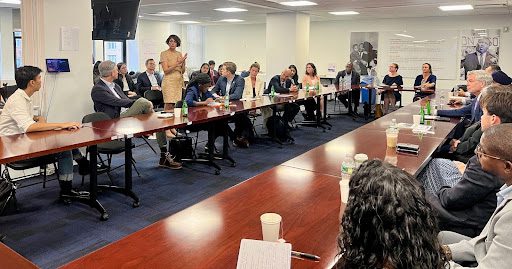
Looking Back, Moving Ahead
By the end of the week, one theme kept resurfacing: conversations are not just talk. They are how trust is built, how ideas spread, and how change begins. Whether it was a mayor describing the link between housing and climate, a foundation leader sharing how grants shift local capacity, or a global partner reminding us to listen south as well as north, these exchanges moved the work forward.
The sessions in New York may be over, but the relationships and ideas they sparked will shape what comes next, in city halls, in classrooms, in community centers, and on the global stage.
Because climate action is not just a plan on paper. It is people talking to one another, finding common ground, and choosing to act together.
